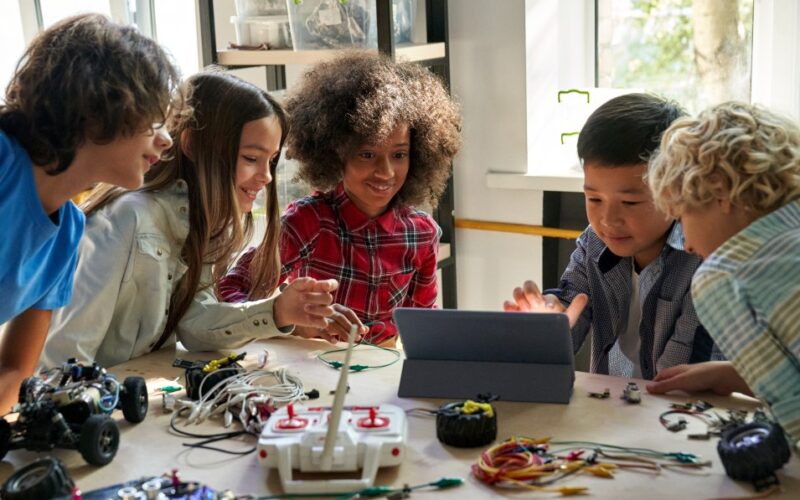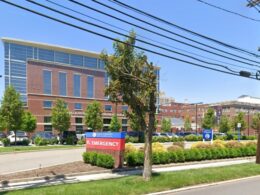The mayoral primary was all about affordability: for the New Yorkers of nearly every income level facing parallel crises, and, for the winning candidate. But sometimes, what a race wasn’t about says just as much about the state of the city: the largest public school system in the country is failing and no one was talking about it.
That’s objectively weird — and it’s about to be completely untenable, given the massive moral crossroads staring us down: AI. Will New York let algorithms optimized for profit reshape how our children learn and live — or will we build a public alternative that protects childhood, empowers teachers, and prepares every student for a democratic future?
Right now, New York City’s schools are failing our children — and failing our future. One in three public school students is chronically absent. Fewer than 15% of Black and Latino students are proficient in math. Despite spending nearly $38,000 per student — more than any other large city in the country — we rank 37th in reading and 46th in math among urban school districts. Meanwhile, teachers are burning out. Students are falling behind. Parents are desperate for help they can’t afford.
Artificial intelligence is already infiltrating our children’s lives. One in four teens now uses ChatGPT to do schoolwork. Fewer than 20% of schools provide any formal guidance on AI use. This gap between reality and regulation is dangerous — and growing. Worse still, the Department of Education has proven again and again that it’s unprepared to handle technological change. It blew $95 million on a failed student data system few ever used.
Around the world, governments are acting with urgency. Half of Finnish schools already use AI-powered tutoring platforms that have improved math scores by 25%. Estonia’s “AI Leap” gives 20,000 students access to smart tutors. Singapore has gone from pilot programs to full integration across its school system. Even Chicago has begun implementing AI in classrooms — with actual timelines and teacher training. New York? We’re still talking.
The only question is whether we harness the benefits — educationally and fiscally — or whether we repeat the social media catastrophe of the 2000s. While we debated screen time and cyberbullying, Silicon Valley rewired our children’s brains for profit. While we dragged our feet banning phones in classrooms, social media colonized our children’s social lives, leaving a generation anxious, depressed, and unable to sustain real relationships.
Still, some will say it’s too complicated. Too risky. Too expensive. But that’s what skeptics said in South Korea — until the government invested $740 million in teacher training. That’s what they said in Barcelona — until civic tech groups built open-source AI tools that parents trust. That’s what they said in Nigeria — until students gained two years of learning in just six weeks.
Getting this right here looks like AI-powered tutoring to boost outcomes and enrollment — sometimes by nearly half a grade level, assuring parents that their kids can get a high-quality education here in NYC. It also means integrating effective, manageable systems to keep at-risk students in school and reduce chronic absenteeism.
And AI tools can even help the 140,000-plus students facing homelessness by linking schools with city services in real-time, enabling swift interventions to minimize the harm from housing disruptions, and helping schools identify and contact more homeless students who can slip through the cracks.
This isn’t just about fixing policy. It’s about proving that Democratic governance works. While Donald Trump tries to dismantle public education, we will show that cities can rebuild it better. While Washington flounders, local leaders can rise. We will unite cities — New York, Chicago, Los Angeles — around a common purpose: protecting children and preparing them for the future. This is how Democrats win. Not with rhetoric, but with real results. Not with slogans, but with schools that work.
It’s also the best defensive play: the best way to stop Trump’s plans to privatize education and hand it over to the highest bidding AI Bro? Beat them to it — and build a public alternative that serves every child, in every neighborhood, regardless of ZIP code or immigration status.
The question isn’t whether AI will change education — it already has. The question is whether we will let that change be led by profit, or by purpose. Will we allow a handful of private companies to rewrite how 1 million NYC children learn? Or will we act — to build public tools that serve the public good?
Tiwathia, a policy and campaign strategist, is a board adviser to the Artificial Intelligence Policy Institute (AIPI) focusing on urban innovation and AI interventions in the public sphere.








